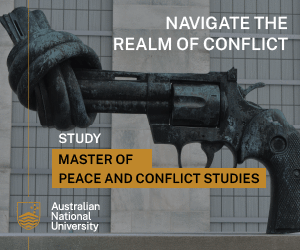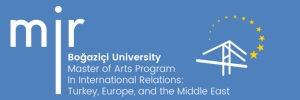The Rwandan Genocide: Could it Have Been Prevented?
The Rwandan genocide is probably the most intensive killing campaign in human history. The ethnic dimension of the Rwandan genocide was a result of a century of ethnic division, which was not characteristic of Rwandan society prior to colonial rule. One can conclude that a combination of historical events and an ideology of hatred contributed to the genocide.
Victims and Perpetrators: the Implications of the Dual Status of Child Soldiers
This paper will seek to investigate the ambiguous status of child soldiers looking at their victimhood, their level of agency and the resulting post-conflict implications. It will argue that although local communities and child soldiers themselves understand their inherent duality, the international discourse has yet to incorporate it, which leads to an inadequate response.
State Construction and the Use of National Narratives
National narratives have been and continue to be used and manipulated by political elites in different ways and for different ends, but nationalism remains inherently linked to migration and the migration policy of nation-states. Migration is also part of nation-building, and the exclusion and inclusion of certain groups by the nation-state seems unavoidable and natural because of the manipulation of national narratives.
Critically assess the decision to go to war against Iraq in 2003
The decision for the United States and Britain to go to war with Iraq in 2003 was, and remains, one of the most controversial foreign policy acts that any British government has undertaken. This essay proceeds to compare and contrast the various aspects of the Just War Theory with the causes and outcomes of the war against Iraq in order to determine whether the war conforms to the theory.
Neofunctionalism and European Integration: Is it Still a Case of Spillover?
Neo-functionalism has been described as a synthesis of David Mitrany’s theoretical ‘functionalism’ and the pragmatic approach to management taken by Jean Monnet,. This paper will argue that neo-functionalism is widely regarded as an unsatisfactory account of European integration, but that particular efforts to (partially) revive the movement have nonetheless been well received by integration theorists, particularly as result of their analysis of supranational institutions.
Sovereign States & State Terrorism
The German sociologist Max Weber claimed “the state is the form of human community that (successfully) lays claim to the monopoly on legitimate physical violence.” This is essentially a statement about state sovereignty. This essay suggests that while only the most extreme and systemic examples of a state abusing its power could properly be called state terrorism, the concept is not a contradiction in terms when derived from dominant conceptions of sovereignty.
I’ll mind my own business if you mind yours: The OAU and the African Peace
While Africa after de-colonialization has experienced many internal conflicts, there has been a puzzling lack of interstate wars. Why is this so? Given the historically rootless borders, lack of vital resources like water, and prevalence of dictatorships, one could have predicted that several African interstate wars would have taken place.
Realism, Military Power, and the Conflict Between Israel and Hamas
The Realist emphasis on military strength does not conclusively explain world politics. For a school of thought focusing on power, Realism misunderstands what it means to ‘have power’. The failure of Israel to gain security demonstrates the contextual and contingent nature of power, and how military capacity is not the means to all ends.
Liberal Internationalism
This essay aims to discuss the ways in which liberal internationalism provides a more convincing account of international relations than class based approaches. Although the liberal international approach has been relatively successful in achieving its aim of protecting human rights and spreading democratic practices, it is possible to argue that this is a more convincing approach to international relations than class-based approaches.
Is the Contemporary Global Political Order Describable in Terms of ‘Empire’?
Hardt and Negri’s ‘Empire’ is heralded as the most successful work of political theory to come from the left for a generation.
For Hardt and Negri, the modern forces of globalization, transnational capital, and the world market have led to the deterioration of the sovereignty the nation-state, which has been replaced by a supranational force, ‘Empire’.













